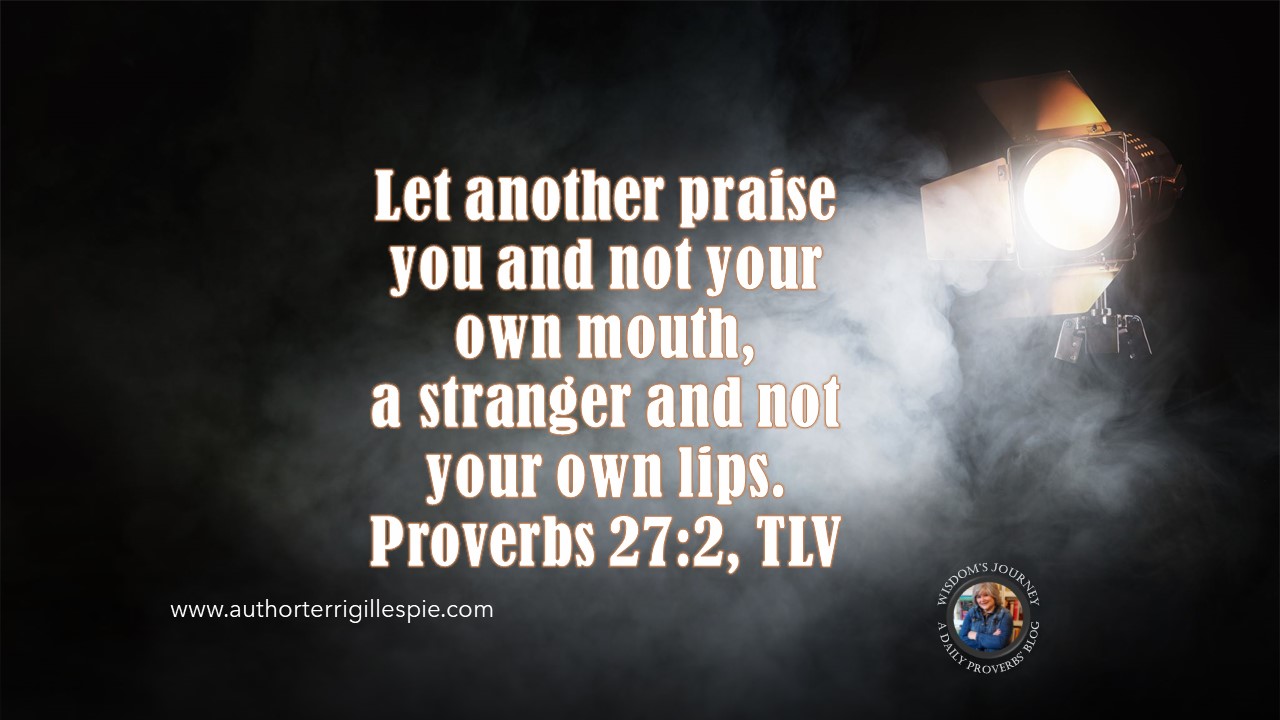Today’s Blog: Praise for Humans Gets Complicated
TODAY’S PROVERB: Let another praise you and not your own mouth, a stranger and not your own lips. Proverbs 27:2, TLV
This verse seems pretty straightforward, right? Don’t brag or boast. But, as always with Proverbs, there are layers of insights and multiple lessons.
First, whether someone praises us, or we praise ourselves, the use of praise is tricky. Praise is given as an act of honor, gratitude, approval, and admiration. It’s not flattery. It is based on observable, affirmed, and confirmed facts.
We praise GOD for all He has done for us. And hopefully we do this regularly.
Honoring someone for a great effort or talent is showing our approval and admiration. The result is we commend the person — we make special note of them. It’s like shining a “spotlight” on them for others to see, or for them to see themselves.
So, how should a recipient respond to this? Do we “humbly” refuse it as flattery? Or soak it in? I believe the response should be gratitude. A simple “thank you” is a great way to begin. Gratitude acknowledges that the person(s) who recognized us did a nice thing without our having to ask.
It also opens the door for humility by returning the public approval with gratitude. That open door gives us the opportunity to praise our Father and others in our life that made all this recognition possible. It’s also a preventative measure against pride.
When an unsolicited praise comes to us, I believe it is directed by GOD. He moves on the heart of others to recognize or approve us and/or what we do. When we get impatient and try to affirm ourselves to others, we may prevent our Heavenly Father’s sweet praise from reaching us.
Praise ourselves?
Are there times when praising ourselves is appropriate? Believe it or not, yes. There are times when we need to point out our experience and abilities in order to present ourselves (e.g., for a job), or to vindicate ourselves when others seek to undermine or falsely accuse us.
Commending ourselves, in most situations, means we feel we must take matters into our own hands to receive what we believe is our due. This is where it gets tricky.
This, I suppose, is not so much praising ourselves as it is point out the facts to clarify or defend our position or authority.
In 2 Corinthians 10:7-8, Paul defends his God-ordained authority by a “humble boast” of his efforts. I think this is necessary when the situation arises.
Still, we should be careful that our defense is not intended to demean or intimidate others. It should only be used as a tool to re-calibrate a situation back into proper order.
So, when others praise us, we should respond in gratitude and humility to keep us from pride. When we “praise” ourselves, it is a tool to gain entry into a new position or to affirm our authority.
However, I leave us with Paul’s final thoughts: “For it is not the one who commends himself who is approved, but the one whom the Lord commends.” 1 Corinthians 10:18, TLV
May we be cautious of how praise is used, my friends.
Proverbs 27:2 Tree of Life Version – TLV, #tlvbible, #tlvproverbs




